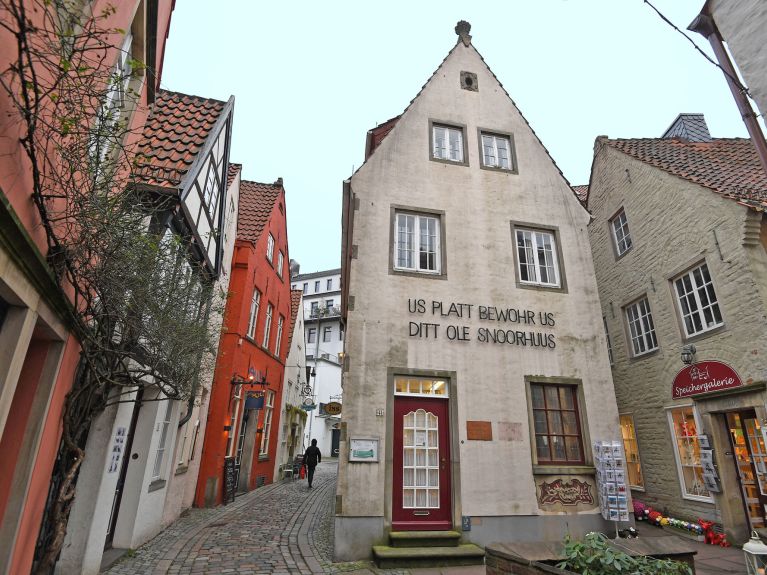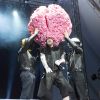German Dialects: The Sound of Plattdeutsch
Once you’ve learned German, you may expect to be able to communicate with people all over the country. If you are in northern Germany, you might be hearing Plattdeutsch.

In the Middle Ages, Plattdeutsch, or Low German as it is called in English, was the predominant language in northern Germany and an important language for trade and commerce as the lingua franca of the Hanseatic League. But in the 16th century, High German began to take on more cultural significance as trade routes changed, shifting power to German states further south. Martin Luther also played a role in this shift: In printing his translation of the Bible in 1534, he gave what is now called Early New High German a leg up—and the chance to reach a large audience.
As the 18th and 19th centuries brought on mass education that used High German as the standard, Plattdeutsch continued to recede until it had become a language spoken largely at home and was often associated with a lack of education.
According to a representative study held by the Institut für niederdeutsche Sprache around 2,5 million people spoke Plattdeutsch in northern Germany. The trend to decline has stopped so far; for the last ten years numbers have been stable. Nevertheless experts have estimated that Plattdeutsch may have disappeared entirely in 20 years. Dr. Reinhard Goltz of the Institut für niederdeutsche Sprache has described the possibility as “fatal”—as a large portion of regional identity and history would disappear with it.
Plattsounds
In an effort to make Plattdeutsch relevant to young people and to prevent the extinction of what some call a dialect and others a language, the Institut für Niederdeutsche Sprache and the Plattdüütsch Stiftung Neddersassen organize a yearly band contest called Plattsounds. Amateur musicians living in Lower Saxony who are between the ages of 15 and 30 can enter an original song—no matter what the original language, and the Plattsounds team will then help the band translate their text into Plattdeutsch so that it can be entered in the contest. The winning band receives 1,000 euro.
Since the instatement of the European Charter for Regional and Minority Languages in 1999, Plattdeutsch has been officially recognized as part of a cultural heritage that deserves protection. “Plattsounds offers the opportunity to raise interest and acceptance of Plattdeutsch music and language,” said the former Lower Saxony’s Minister for Science and Culture, Professor Dr. Johanna Wanka. The competition’s motto, accordingly, is “Platt is cool.”
“Plattsounds shows how modern and expressive Plattdeutsch is,” said the Director of the Oldenburgischen Landschaft Dr. Michael Brandt. But it is really possible to make something “cool” that youth culture has left to its grandparents’ generation?
As an example, Brandt points to the northern pop quartet Tüdelband, whose Plattdeutsch songs have been received very positively. The Tüdelband—who can be heard playing on the video advertising the Plattsounds contest—are proving that music in Plattdeutsch can be popular, despite the dialect’s decline. The group has a full touring schedule and has recently put out a new album, available through their website.
Learn Plattdeutsch
So what does Plattdeutsch sound like, you’re wondering? Well, you could listen to a Tüdelband song with High German subtitles (my favorite) or watch Star Wars dubbed in Plattdeutsch (hilarious or disturbing? You decide) on youtube. Radio Bremen even offers a free online Plattdeutsch course. If you don’t have the time, check out a few phrases below to get an idea of how Plattdeutsch varies from High German.
English: How are you?
High German: Wie geht es dir?
Plattdeutsch: Wo geiht’t?
English: Bon appétit!
High German: Guten apetit!
Plattdeutsch: Laat did at lecker schmecken!
English: Can you speak more slowly?
High German: Kannst du langsamer sprechen?
Plattdeutsch: Snack maal ‘n bäten suutje?
English: Do you speak Plattdeutsch?
High German: Sprechen Sie Plattdeutsch?
Plattdeutsch: Snackt ji Platt?
English: Excuse me!
High German: Entschuldige!
Plattdeutsch: Nähm dat man nich för ungood!
You can learn more Plattdeutsch phrases here.
